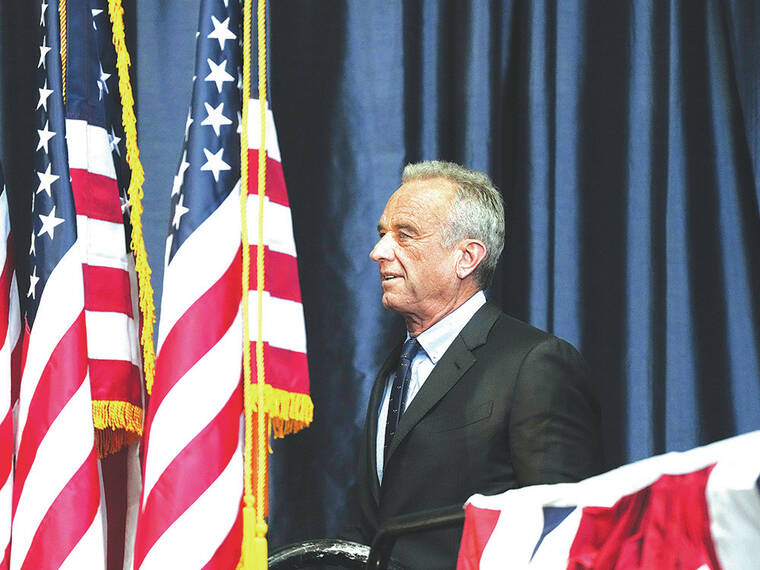RFK Jr. claims censorship after Facebook and Instagram briefly block new ad
Robert F. Kennedy Jr. has made censorship — specifically, claims that the government, news media and tech platforms have tried to stifle his message — a cornerstone of his independent presidential campaign.
This weekend, Kennedy got more fodder for his argument when Facebook and Instagram blocked a link to a new, sleekly produced 30-minute ad supporting his candidacy. The link appeared to have been blocked from Friday late afternoon until Saturday around midday.
Meta, which owns both platforms, called the episode a mistake. Andy Stone, a spokesperson for Meta, said the link had been incorrectly flagged as spam. “It was mistakenly blocked, and it was corrected within a few hours” after the issue was discovered, Stone said.
Tony Lyons, a founder of American Values 2024, the super political action committee that paid for the ad, said the group planned to sue Meta in federal court, accusing the company of censorship and of violating First Amendment rights to free speech.
“When social media companies censor a presidential candidate, the public can’t learn what that candidate actually believes and what policies they would pursue if elected,” Lyons said. “We are left with the propaganda and lies from the most powerful and most corrupt groups and individuals.”
The ad, which is narrated by actor Woody Harrelson and takes the form of an infomercial, was produced by Jay Carson, an informal adviser to Kennedy who is also a Hollywood screenwriter and a former top aide to Hillary Clinton.
The ad seeks to introduce Kennedy to a broad audience, portraying him as a crusader for a clean environment, good government and American values, free from corporate influences that he says have corrupted the major political parties and endangered Americans’ health.
The ad also seeks to confront, in a lighthearted way, criticisms of Kennedy. It opens with his reading aloud from press clippings that describe him as, among other things, “clearly disturbed,” “so crazy,” “a walking, talking conspiracy theory” and a “humorless bully.”
After the video’s release Friday, Instagram and Facebook users began to report that posts with the link had been removed because it appeared to violate the platforms’ terms of service, according to screenshots either shared with The New York Times or posted online by supporters and the campaign.
On Saturday, the campaign released a TikTok showing a compilation of error messages. The campaign also sent out a fundraising email to supporters, urging them to document what it described as “election interference.”
© 2024 The New York Times Company


